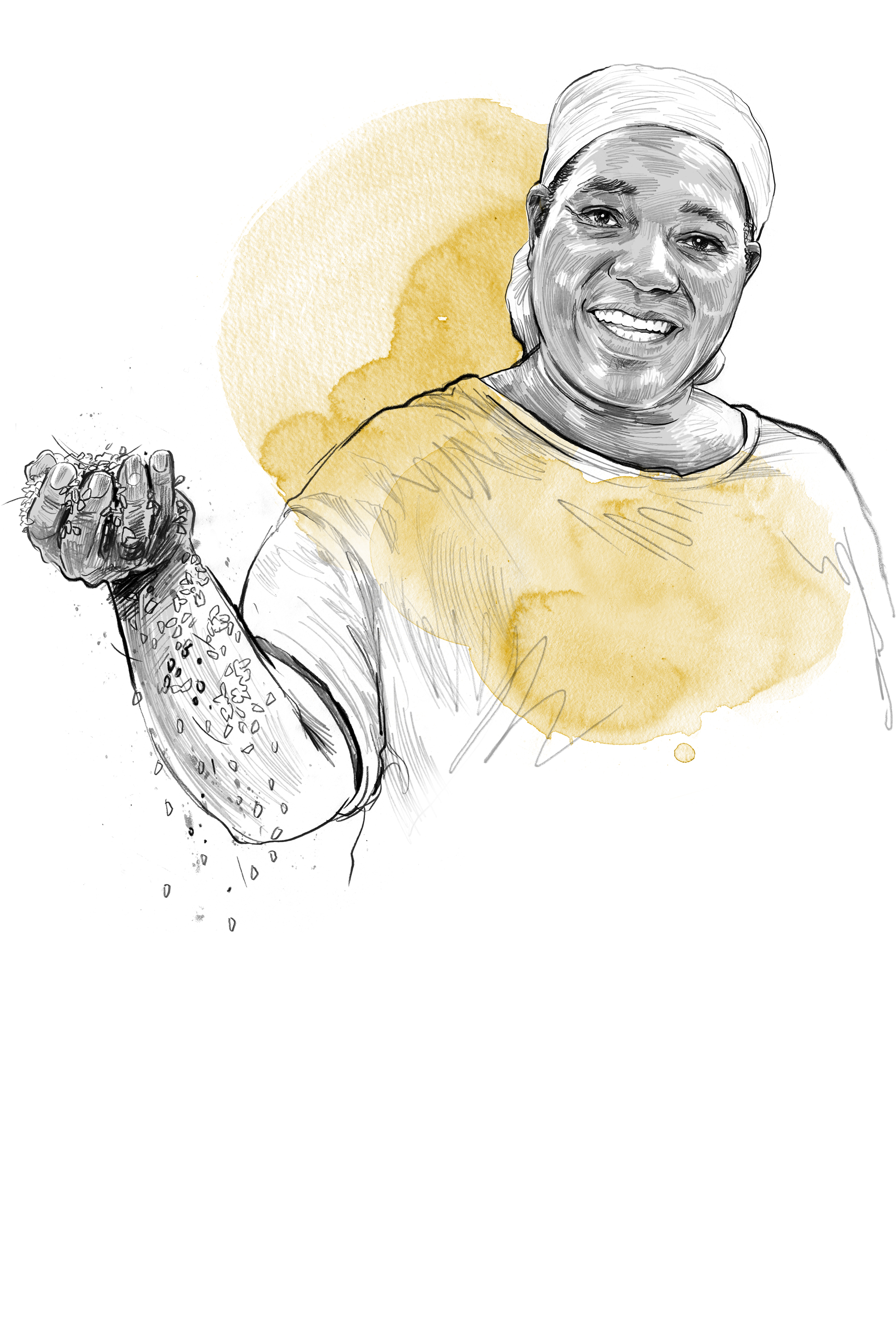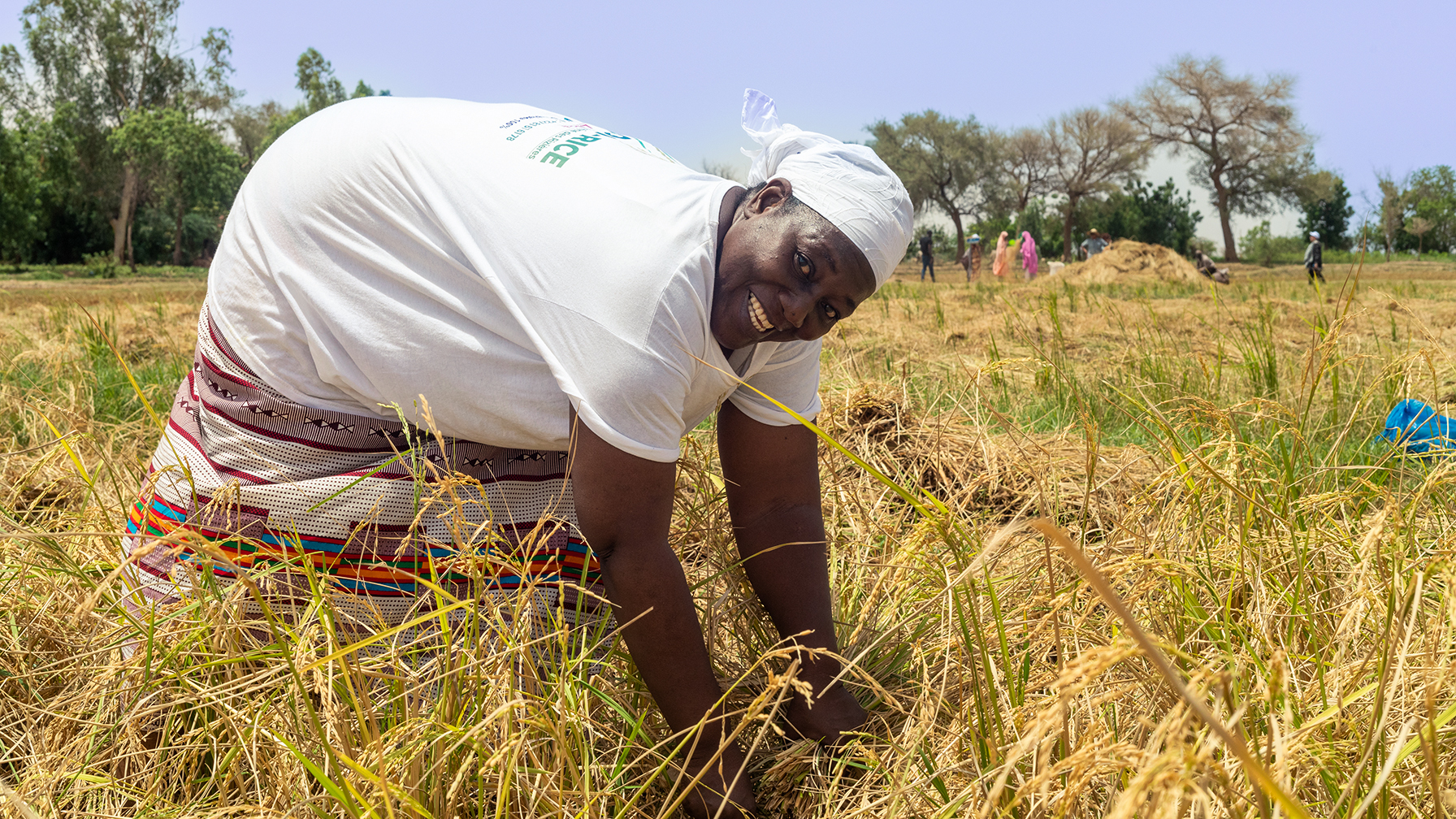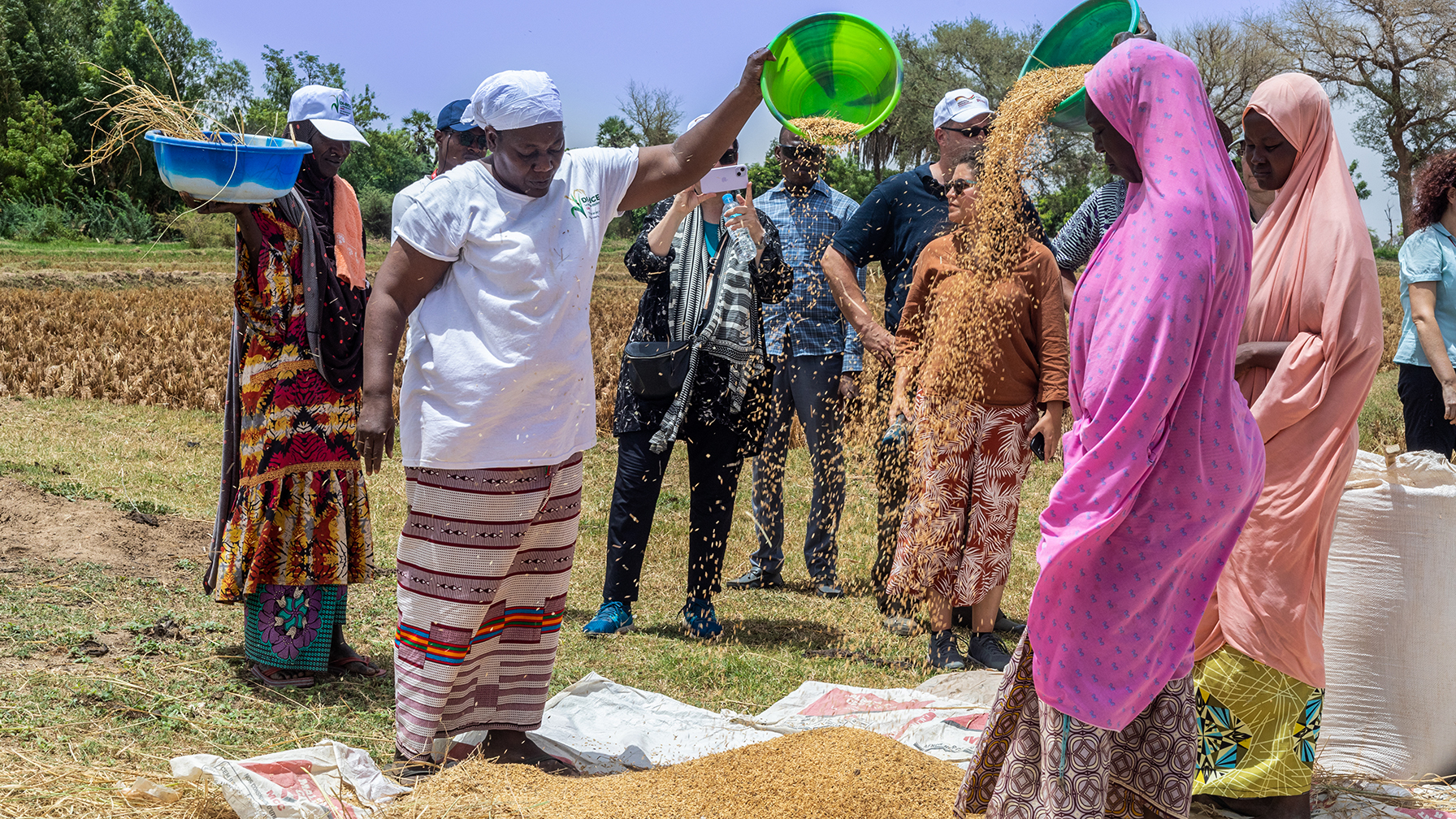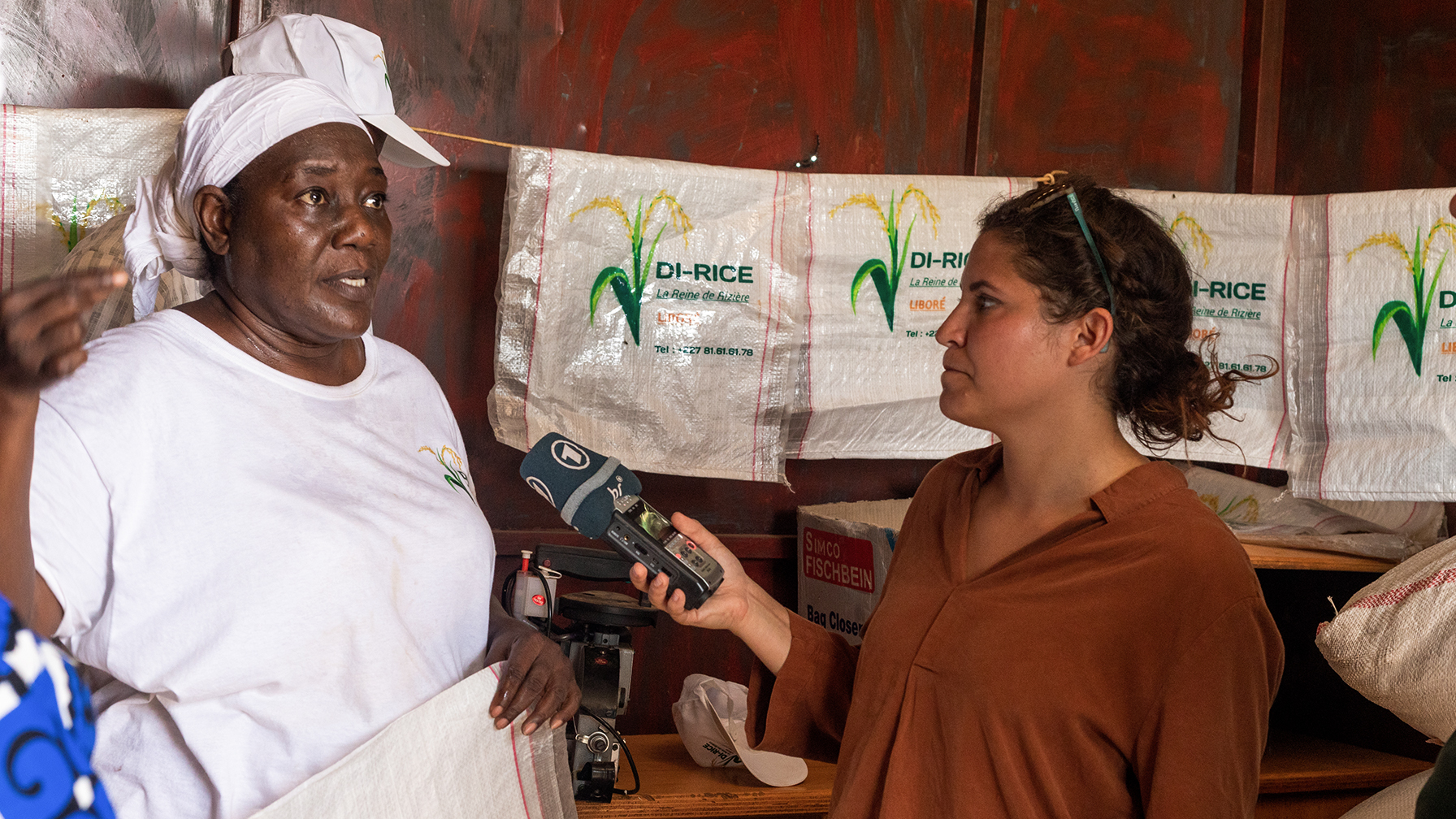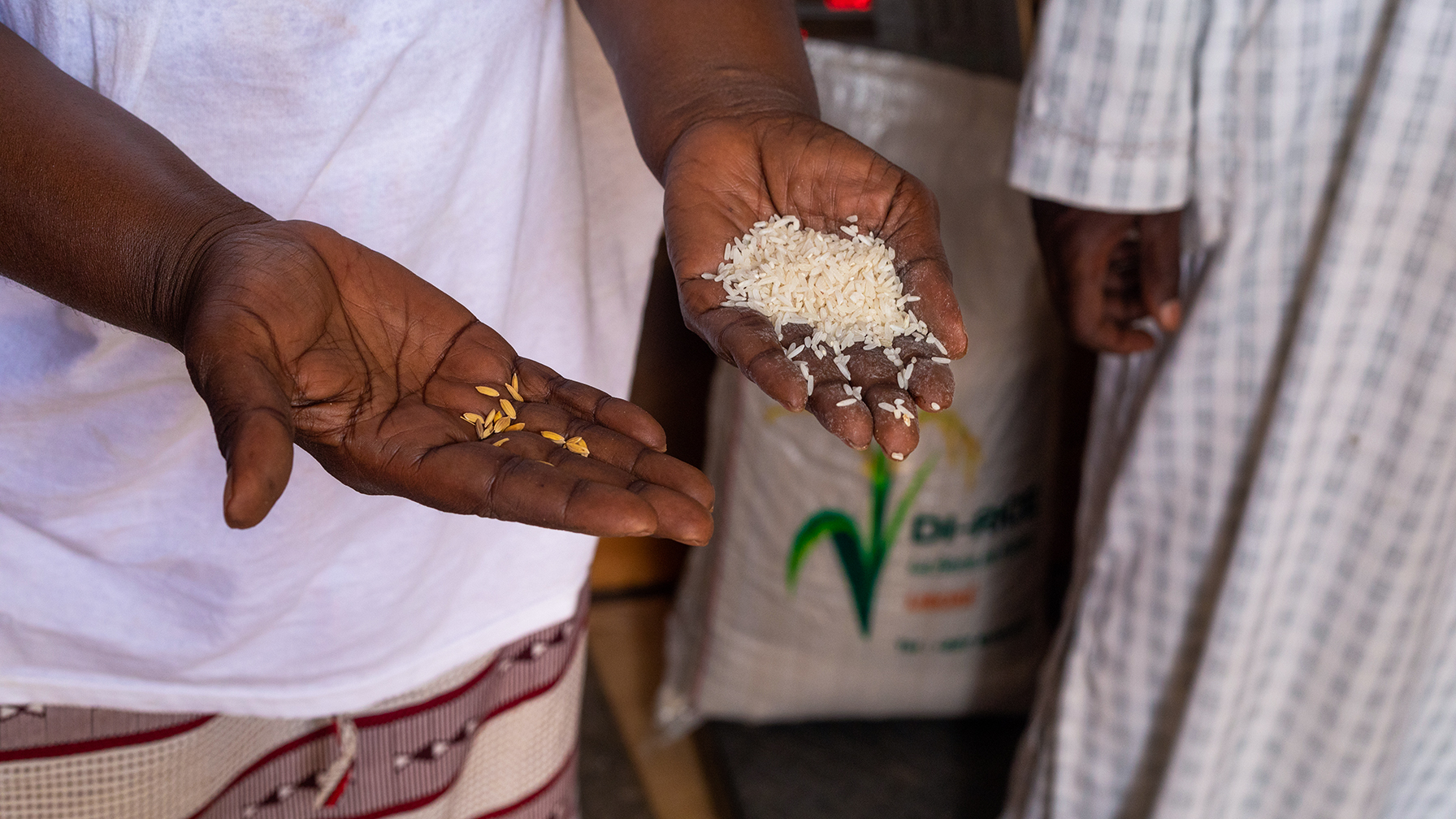How did you come to be a rice farmer?
My grandfather and father were both rice farmers. It’s usually just men who grow rice, even if the land belongs to their wives. Five years ago, I decided to start doing it too, when my father gave me some land to use. But he and my four brothers, and the men in the village, none of them believed I’d succeed. I made my first attempt on a quarter of a hectare and I harvested 30 sacks of rice. I gave one of them to my father. I’ve been producing, processing and marketing my own rice ever since.
Did anyone help you to set up the business?
My husband did from the outset. Since then, I’ve also been able to convince the other men in my family. The GIZ project ProEMPLOI II organised a training course and job coaching between September 2022 and April 2023. I benefited a lot from that. I learned how to draw up a business plan and do my bookkeeping. Then I registered my business, which had just been informal before, under the name ‘La reine des rizières’. I started to sell the bran, broken rice and straw as well. I invested the profits in machines for husking and weighing, and for stitching the rice sacks, as well as in a storage and sales point. And I was able to employ three people – an assistant, a guard and a seamster – as well as ten seasonal workers, that I want to provide with long-term perspectives. My plan is to become Niger’s biggest rice producer, and to export to Nigeria too. I only want to employ women in the future.
How do you support other women to do the same as you?
Where I live, men are very dominant. There’s a lot of domestic violence. I always tell the women: Grow something, and then process and sell it. They should contribute to the household budgets, open their own accounts and organise themselves into groups. That way, they are better able to care for themselves and their children. Financial independence and being good at what you do is the best way to counteract violence. This is something I always emphasise, as chairperson of the agricultural federation Women’s Courage.
